An interview with FOX 11’s meteorologist, Maria Quiban Whitesell, author of You Can’t Do It Alone: A Widow’s Journey Through Loss, Grief and Life After.”
(Note: If you prefer to watch or listen to this interview, click on the image at the bottom of this post).
Imagine you finally meet the love of your life. Eventually, you marry, and soon after you welcome the birth of a baby boy who you lovingly name, Gus. You and your husband, Sean, both have thriving careers. Everything is on course and going as planned. But then, when your son is three, your once vibrant and athletic spouse starts to display odd behaviors including confusion, forgetfulness, and the need to take naps. Soon after, he receives the devastating diagnosis of a terminal illness with a prognosis of possibly three to six months to live. Once you get over the initial shock and disruption, what do you do?
You are heartbroken and this diagnosis obviously wasn’t in your plans. Suddenly, you’re thrust into the role of primary caregiver and you need to figure out a way to handle this on top of working full-time in the public eye and guiding your very young son through not only his father’s illness but the inevitable demise of the person you both love. How do you retain hope while preparing for impending loss and grief? Is it even possible to find joy and make meaningful memories in the midst of all the medical appointments during the short time you have left together?
Maria Quiban Whitesell addresses the above questions and more in her memoir, You Can’t Do It Alone: A Widow’s Journey Through Loss, Grief and Life After. Maria collaborated with Lauren Schneider, LCSW, a nationally recognized authority on children’s grief to provide practical advice and reinforcement at the end of each chapter in this informative yet heart-wrenching and heart-warming book. More than anything, You Can’t Do It Alone is a deeply touching love story. Maria shows us the delicate balance that caregivers face with where and how to best spend their time. This book also provides a roadmap to the important decisions that need to be made especially when children are involved–-something Maria recognized since she too suffered the loss of a parent as a young child.
A few months after Sean’s diagnosis, Maria discovered a wonderful support system and with their help, she was able to develop coping strategies. She encourages other caregivers to do the same and wants them to know they are not alone.
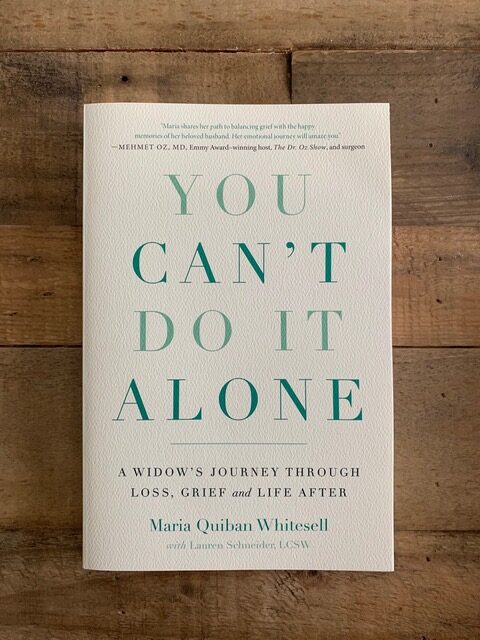
“Just like I thought it was impossible to find joy in the days when Sean was in the midst of cancer and treatments, I did not imagine that I would one day see this difficult road lead to a beautiful destination.”
– Maria Quiban Whitesell
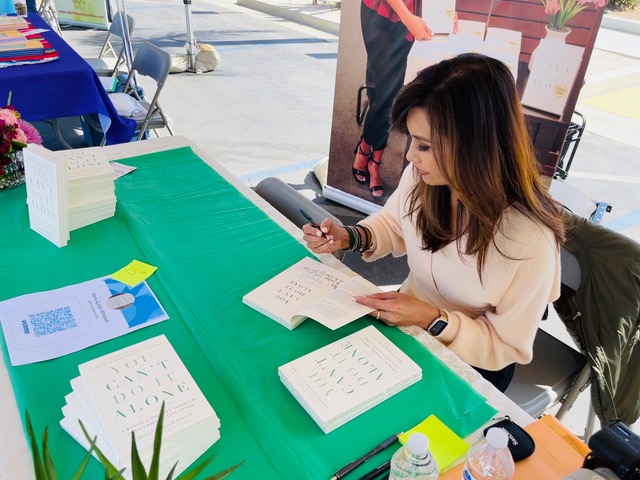
Wendy: Welcome Maria and thank you for your time. Let me start by saying how truly sorry I am for your loss. I’m grateful, however, that you chose to turn your story into such a beautifully written memoir. I wish everyone in our community could read your book as it is honest, healing, and insightful with messages about community, faith, family, hope, joy, and love.
In the spirit of jumping right in, I’ll start with a loaded question. December marked seven years since Sean’s passing, how are you and Gus doing?
Maria: First of all, before I get into the answer to that question, thank you so much for inviting me. I tell everybody when I’m asked to speak about the book, it truly heals my heart. And, I thank you for helping me heal my heart by talking about the book. My hope is that by talking about Sean and sharing our story perhaps another family will be able to deal and cope with a diagnosis like brain cancer as well as loss and grief.
We are doing well. It’s still difficult to believe how many years have passed. Sometimes it still feels like it was seven months ago rather than seven years. I’m coming to terms with the idea that I will always feel like this–as if he’ll still walk in the back door one day to announce he’s home like he always did. I’ve accepted that emotions get triggered (especially during the holidays) bringing us back to just days before Sean passed away.
I’m just thankful we have this amazing village, this circle of friends and family that is a community for us, and such a safe space where we are allowed to be sad and also happy at the same time. By the way, we are continuing to choose joy to live the best lives we possibly can in Sean’s honor. We’re trying to make him proud because that was a promise we made to him. We will continue to choose joy and live our best lives for the remainder of the time that we’re here.
Wendy: Oh Maria, so many good messages in all of that. Do the feelings of loss and grief get any easier?
Maria: The holidays will always be an especially difficult time for us because they are so close to the date of Sean’s passing. I try to anticipate it now, so over the last few years, I’ve taken some extra time off from work to ensure I make space and time for myself and my heart. Doing that also gives Gus and me a chance to talk about the feelings that may come up along with some of our favorite daddy memories. We share tears sometimes, but mostly we share laughs. We acknowledge our sad feelings of missing Sean, but then we focus on what we have to be grateful for like our family and the fun we continue to have with them celebrating Gus’ birthday (also in December just before Christmas).
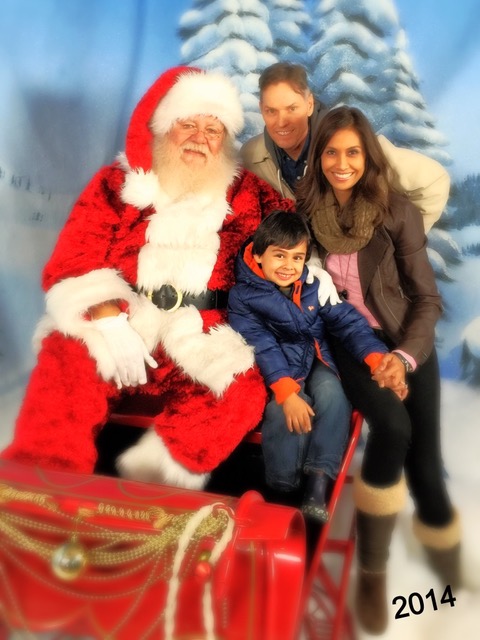
Wendy: Can you talk about one or two of the strategies you and Gus have developed for coping?
Maria: Yes. First of all, I wrote the book as part of a promise I made to Sean. There’s a sense of asking why, you know, why was this happening to him? Why was this happening to us?
We thought maybe a part of our purpose was to acknowledge the fact that I wore a microphone every day and he was a writer by profession. And we thought, you know, there’s not much information about how to navigate brain cancer and a diagnosis like Glioblastoma, the treatments, and how complex this disease really is. There are over 100 different types of brain tumors and so little information is out there. So that was one of the reasons why I wrote this book to try to share some of the strategies that we learned along the way.
For example, I learned a lot from a UCLA brain cancer support group for caregivers. The people that I met in this group are invaluable to me. We are still in contact to this day and we still get together after all this time. What they shared with me was so precious as they were already on the same road. Some were slightly ahead of me and they were like lampposts and guideposts to me. They really shined a light on this very dark journey. If I hadn’t had them, I think it would have been almost impossible in some ways for me to handle and cope with what my family and I went through. I encourage anyone who is a caregiver to find the resources, there are support groups that are there just for them. Wendy, I know you even have a resources page on your website with links to organizations like the American Brain Tumor Association which can provide guidance and mentorship.
Another thing I also picked up was, of course, finding the right therapist–finding the right family counselor and that was number one on my list. So whether you have a diagnosis like this or not, I think we all can benefit from a really good family counselor. We found an amazing counselor who eventually led us to this incredible family therapist that really specialized in talking with children about a cancer diagnosis and how to cope with loss and death. We speak to Betsy (our family therapist) regularly. She really was the one that helped me find the language to talk to a three-year-old about what a cancer diagnosis is and that it’s not the same as being sick. You know, we never referred to Daddy as being sick. We always were very clear (and age-appropriate of course). We spoke to Gus plainly about what cancer was, and then eventually after he turned five, we told him what death was.
Wendy: I know you also lost a parent at a young age and in your book you talk about how that experience informed the way you wanted to incorporate Gus into what was happening with Sean. You just mentioned the importance of using detailed, age-appropriate terminology with children, can you please expand on that? Why is it important to be as specific as possible with children about a terminal illness?
Maria: Absolutely. You know, it’s interesting how life kind of prepares you sometimes as a child for what could happen when you’re an adult. And so when I was seven years old, my birth father died in an accident very suddenly. My mom was very young and the resources that were available then certainly are not what they are now. And so as a young mom, I think my mother didn’t have the kind of tools we have today. I remember it being a very scary time for me and I just didn’t want that for Gus, who was three at the time of the diagnosis. Sean and I really wanted to make sure that not only were we taken care of, but most of all Gus was taken care of and we just never wanted him to be afraid in any way. So we were very clear with him on what was happening we never lied to him.
“It was important for us to use the right language because having cancer was very different from being sick. We wanted Gus to know that if he got sick with a cold or fever he wasn’t going to die…that if Mommy had a cold and felt sick, she wasn’t going to die. He understood early on that cancer was different.“
Wendy: Such good advice!
Since you brought up UCLA, I should disclose that I too am a patient at UCLA. In fact, Dr. Timothy Cloughesy who you described in your book as having treated Sean is also my neuro-oncologist. As I’m sure you know, Dr. Cloughesy along with Dr. Linda Liau (my neurosurgeon) Co-chair UCLA’s Brain Tumor Center.
I remember being in Dr. Cloughesy’s office shortly after my craniotomy and seeing a flyer on the wall for a brain cancer support group through the Cancer Support Community (CSC). However, those meetings took place in West Los Angeles and I wasn’t driving at the time so I couldn’t go (this was pre-pandemic, they probably have virtual meetings now). Eventually, I found my way to the CSC in Redondo Beach and they connected me to a general cancer support group for patients that took place weekly very close to my home. Attending those meetings was a vital part of my healing too.
Speaking of support groups, perhaps this is a good time to ask you about the Seven Samurai. Who are they?
Maria: Well, you and I have that in common, and since Sean was treated at UCLA we spent a lot of time there in those little offices. And I too, first of all, love Dr. Cloughesy and Dr. Liau, they really are an incredible part of an amazing team there at UCLA. That actually brings up another very important suggestion… to make sure you know where to go to find the best and most advanced treatment. And these guys are just top-notch in the country!
As far as the Seven Samurai, I saw the same flyers that you saw every time we went in for an appointment, and I ignored them. I thought to myself, I don’t need to do that, we’re part of the statistic that’s going to beat this cancer. And I don’t need to be in a room full of other people who are so sad and just you know, without hope. And I fought it, I just didn’t want to be a part of it. It took a few months until finally one day I was just feeling down and really frustrated. I felt like I didn’t have any of the answers that I was looking for and I turned around and saw that flyer again. There it was in my face, you know? I thought okay, God, you’re giving me a sign here. And so I called the number on that flyer and I went to the meeting. I really went kicking and screaming but I did it–I went. I continued to attend those meetings even when I didn’t feel like going and I’m glad I did because ultimately I ended up learning so much.
I met the most incredible people in those meetings who are my friends to this day–and they are the Seven Samurai, as I call them. So I met these people who also had loved ones battling Glioblastoma. I’m not sure if it was divine intervention or just meant to be, but they were further along than me on this path. They would give me information about the latest clinical trial or certain kinds of symptoms that I wasn’t quite aware of yet, so when Sean started to display the same symptoms I remembered what they shared in the group. Thanks to them I knew what was happening and I kicked into gear. And then if I had a question I would call them. And they were just an incredible resource for me that–oh my gosh if I didn’t have them–I truly would have been an even bigger basket case than I was. I would have been even more frightened. And it was frightening. I was so terrified. I just could not imagine that road without them that entire time. So I’m forever grateful to the Samurai for just the love and guidance they gave me, and the hope they gave me and continue to give me.
There are people in this group that still offer me so much hope because some of them have actually put their hearts out there again and have found love. We talk about all kinds of things, including our spouses of course, and how much things have changed.
Wendy: Speaking of love, you and Sean had a true love story. Tell us about Sean. How did you guys meet and what role did Bruce Springsteen play in bringing the two of you together?
Maria: I love, love, love that question! And that you ask about Bruce Springsteen as well because he’s such an integral part of our relationship, and how we met. And Bruce is…just a God, you know he’s “The Boss!” Sean and his brothers all love Bruce Springsteen. I mean, I love Bruce Springsteen, but they just take it to a whole other level.
So the night that Sean and I met, it was because a colleague of mine at the time was dating his brother (he’s got five brothers). And so they were having a dinner party one night. I was invited to go but I didn’t want to attend at first because it was going to be a bunch of couples, but then it was sort of a matchmaking process and my colleague and Sean’s brother were kind of playing Cupid for us, I think. And so that night I remember it was almost at the end of the dinner and I hear these voices. Sean walks in with the rest of his brothers. I just hear the loud voice, which was so warm and resonant, and Sean comes up and says, hello you must be Maria. I remember Bruce Springsteen was playing in the background. I’ll never forget that night. I don’t really believe in love at first sight, but there was definitely a very deep connection and a strong like immediately with Sean. There was definitely something special there.
But then like any relationship, you know, you go through some trials and tribulations, and within a year we broke up. I think I even started dating someone else. Then one night I had to go do a live shot at a Bruce Springsteen concert. And I remember thinking, oh, gosh, I hope Sean’s not going to be there. I even remember calling his brother’s girlfriend. And I said, hey, by any chance do you know if they’re going to this concert? And she said, no, I think they’re going tomorrow night so you’re safe tonight. I said, okay, great. So I go to this concert. Bruce is playing in the background and lo and behold, I didn’t know it, but Sean had snuck in to see that particular concert. He was going to go the next day. But he was there. He saw me down there by the stage covering the story. He said he just felt compelled to call me after my live broadcast on the news. And he said, hey, I miss you. Do you want to go grab a beer? We can talk about the concert, you’re literally right down the street. I said okay. And so we did and we were inseparable after that. We worked out our differences, and we were together ever since.
Wendy: Nice! I wonder if Bruce Springsteen has heard this story.
📢 [Bruce, if you're reading this blog post or listening to our podcast--you played an integral role in getting these two together]!
Maria: He Really did! Anyway, when Bruce was on stage he gave a shout-out to his good friend (and well-known actor) also named Sean who was in the audience. It was as if he was talking to my Sean. Then he sang the song “Maria’s bed” and I was like, gosh, yeah. So there were just all kinds of subliminal things going on.
Wendy: Awe, that is so sweet! Can you please share how Sean proposed and where were you married?
Maria: Sure. Sean was so funny. He was not a cliché guy but on February 13th, the night before Valentine’s Day, he surprised me by proposing. I had no idea he was going to do that. I was already married before and I had an older son. I didn’t need to get married again. I wasn’t wanting to necessarily do that. But he wanted to, he’d never been married. So he proposed. And then we talked about trying for a baby together because he didn’t have any children. We said, well, let’s do it right away, why not? So we got married that September in a big home owned by a good friend of ours. The home used to be a private library located in the West Village of Manhattan in New York City, which is a place that’s very special to both of us. We love it. I grew up in Hawaii. I’d always wanted to live in New York City at some point in my life. Sean lived in New York City on and off, working on different television shows. So we got married there and it was an amazing weekend with just our family and very close friends. It was very, very special.
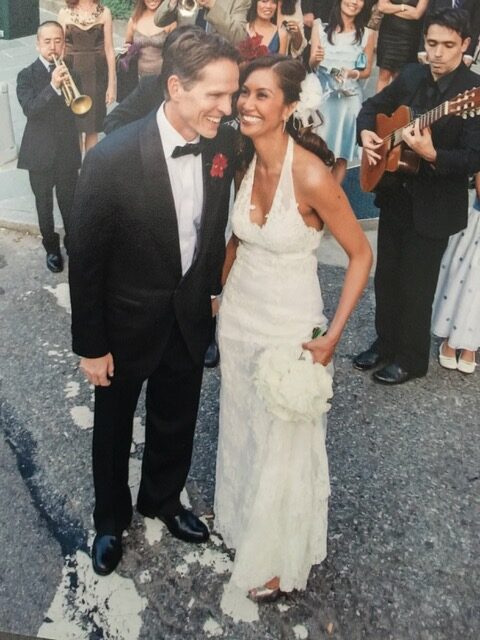
Wendy: Sounds lovely.
Okay, so now I need to ask another difficult question… What do you recall about the day that you learned about Sean’s diagnosis?
Maria: Yes, so, just a little bit of history. Before the diagnosis, Gus had just turned three and Sean had just turned 50. We hadn’t been on a vacation together since our wedding and so for his 50th birthday, his brothers gifted him with a trip to Paris (neither of us had ever been to this romantic city–the city of lights) So we thought, this is a great time for us to go…
Wendy: Wow! Everyone needs brothers like that!
Maria: Right? They’re the best!
Maria: You know Sean’s brothers are amazing. They’re so wonderful, all of them. And their wives are incredible! I just love them. They’re my people. They’re my family as well and we’re still close to this day.
But yes, his brothers gifted us–I should say–for Sean’s 50th birthday, a trip to Paris. And we were looking forward to it so much. Prior to the trip, we had both been working nonstop as usual. I worked very early in the morning and Sean was a writer, so he was constantly on deadline. We were kind of like ships passing in the night. And so we decided we’re doing this, we’re going to Paris! My parents helped us by coming to stay with Gus.
When we were on this trip, however, I started noticing some really different things about Sean that I hadn’t seen before. His behavior was very different. He normally planned the itinerary for us when we would go on a trip. He didn’t do that. He typically was up before me and would go right to the gym and work out before I even woke up. He decided to sleep in during this trip, so that was very odd behavior. He also could not hail a cab when we were in Paris (and this is a man that had lived in New York City). He knew exactly how to get a cab. He for some reason just forgot how to do it. And that was very troubling to me.
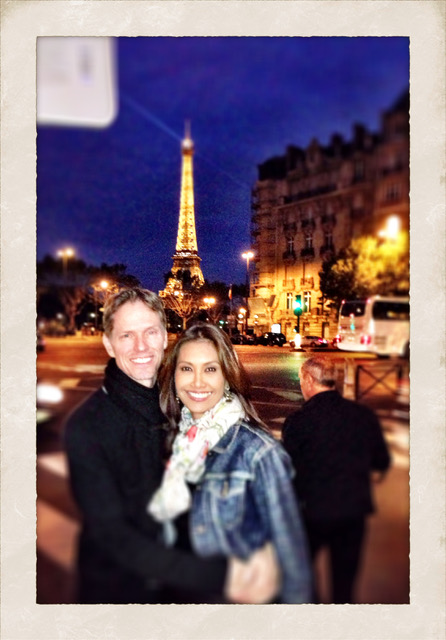
So every day we were in Paris, his behavior got to be worse and worse. His forgetfulness was just not normal for him. By the end of the trip, I literally was in tears and I said, you must promise me to see a doctor. I don’t know what’s going on but we have to find out. Inside I’m thinking, Oh my God, maybe he has Alzheimer’s or something. Or maybe something neurological is happening. Or maybe it was his medication. He did take one medication, I remember, for his thyroid he’d been taking his whole adult life. So I thought, well, maybe it’s that.
When we got home, it took exactly two weeks to get that appointment. From there he saw various doctors and a neurologist–all trying to figure out what was going on with him. Then he got an MRI. And I’ll never forget it was June 18th when he was scheduled for the MRI because of depression. He felt down, according to the psychologist that had seen him. There was nothing really wrong with him up until that point physically.
After the MRI he got the call, you must quickly go now to the brain tumor center at St. John’s Hospital. I remember calling him later that day and asking, where are you? He responded I’m driving to Saint John’s. I had just gotten off work and I said why? And he said I don’t know. The doctor left a message something about brain tumors. And even that in and of itself, that behavior, that nonchalant way of saying it was so not like Sean. And so I said I’m going to go with you. I’m going to go meet you there. And he said if you like, I’m like what? Of course, I’m going to go.
I remember meeting Sean at Saint John’s and he just was kind of pale. And when we saw the doctor he showed us some scans and said here, look here. And we just saw these dark spots where his brain was. And I just felt like a truck had hit us. I was dumbfounded. I could not understand what was happening. So yeah, that was an awful day, especially learning that it was inoperable, and it was terminal brain cancer. It changed our lives, you know? From then on, life was never the same.
Wendy: Oh my gosh! But eventually, you ended up doing such a good job of turning that incredibly sad and scary situation into something positive that will hopefully help many others. One of my favorite quotes from your book was when you said:
“I wanted to write this book to help others who are working their way through grief and devastating loss to find the happiness that Sean, Gus, and I found.”
Finding happiness and joy in the midst of grief is remarkable! Remarkable, and almost paradoxical. How did you accomplish that?
Maria: It was so hard at first. But then one doctor told to us that “we can choose joy. Do it.”
I remember that day as Sean and I left the doctor’s office I was thinking, really, I want to punch that doctor in the face. Like, how are we supposed to find joy when you just told us that he’s going to die and may die in about three months if we don’t do anything? And if we do, and if we’re lucky, he has maybe a year. Yeah, choose joy, sure!
But, we took the challenge on and that was a testament to Sean. I really followed his lead on a lot of what happened during those weeks. He always did somehow find a way to look at the upside to things, to find the solution, to find that silver lining. He said, you know if they say we can do this, let’s do it. Let’s find the way. And so I said okay and you know, I think that involves the exercise of taking stock of what you have. Looking around and asking, what happened today that we’re grateful for? What was the wonderful thing that your son did today? What was the new word he said? What made you laugh today?
“And it really was a great exercise because at the end of each day, when we itemized it, we realized how much joy we had in our lives. We actually had fun. Even though we had to go get radiation or chemotherapy or drive to an appointment or whatever. There were moments when we laughed and laughed hard. During those days we looked at each other and thought yeah, that was a good day!“
I remember thinking, I’m so grateful for this, and I’m so grateful for the time we had today because honestly, none of us knows if we’re going to be here tomorrow. Yes, he had brain cancer, but I could have been hit by a car the next day. I could have been in an accident on the 405, God forbid. Anything could have happened.
“What a gift we actually had knowing we had a timeline, knowing we had to choose joy and we were able to do it.”

Wendy: Wow! That’s beautiful, Maria! I remember reading that the three of you did 18 years of living in those 18 months! That’s really special because so many of us go through our daily lives going from thing to thing, meeting to meeting, deadline to deadline–just trying to get through the day. I know that’s what I did most of the time prior to my brain cancer diagnosis. I was a workaholic and it took brain cancer to finally slow me down.
Oh, and while on the subject of working… I was inspired by your decision to take six weeks off from work
while Sean was still “stable” so you could as you said, “enjoy some good days with Sean and Gus.” I think that was really unique. What gave you the presence of mind to do that?
Maria: Yeah. I think it was the influences that I had. We both had very strong faith (especially Sean) and we both went to church. We both believe in God and in heaven and we believe that where we are now is also heaven so–we decided we were going to live our best lives, right now and we were going to make memories for our son. He was our number one. We didn’t want Gus to grow up and not have the opportunity to say, I went fishing with my dad, or I went on this trip and we went kayaking. Or, you know, my dad taught me how to shave. We wanted to capture as much as we could for Gus. We wanted to make sure he had memories that he could hang on to as he got older. And so we decided to do this together. We always made decisions together, even up until the end.
I was also fortunate to have a job where I had bosses who said sure, you want to take that time? Go do it. I was able to take advantage of some of the financial resources we have here in California like Paid Family Leave, and of course help from our family. Financially, I needed my job. I didn’t have the ability to quit so I was grateful for the fact that they allowed me to take the time off and then come back after so many weeks.
Wendy: Such great reminders.
Can you expand on the importance of documenting as much of Sean as possible for Gus to be able to reference as he grows up? You wrote, “The videos of him also help me and the rest of our family keep Sean’s memory alive.” You said:
“As the caregiver, even though the outcome may be out of your control, you are the one who decides how this story gets written, and you can, and must, create little miracles along the way.”
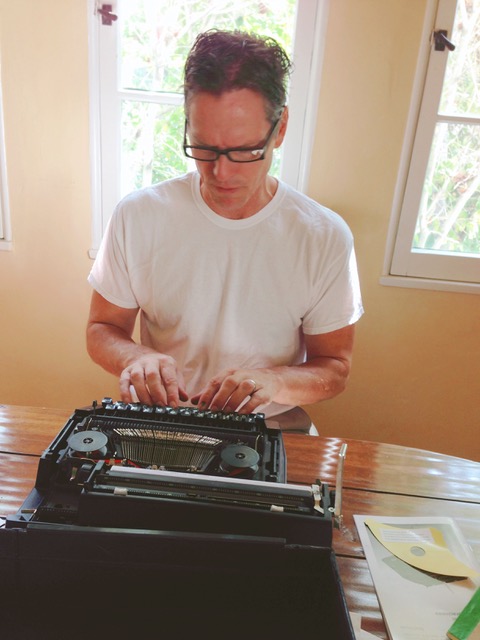
I was especially touched by the story that you shared just now (and in your book) about recording Sean shaving for Gus. Such a small thing–but so big–so meaningful. Can you speak to your motivation for that?
Maria: I just wanted to capture every moment because as you know, I was seven when I lost my birth father. We didn’t have smartphones back when I was a kid so I have very few pictures of him. I don’t have much in the way of real vivid memories of him either so I had first-hand experience of wondering and wishing that I had more of my dad. So, when it came to Gus, I looked at him and said I just want something different for you. I think that was my main motivation. I would take every opportunity to record their interactions to get advice from Sean. I would just throw out questions like, what would you say to Gus if he said he had a girlfriend or liked a girl? Or, what would you say to him as he walks into his first day of college? I would just ask a billion things, as much as I could. The funny thing is, as much as I have on tape, I wish I had more. I know I was a pain in the ass with that camera and taking pictures and videos of everybody, but I’m so grateful for them now and so is the rest of my family.
Wendy: I think that’s amazing! We truly are very fortunate to live in a time where we have the technology which makes capturing memories so easy now.
So, if you don’t mind sharing this with us, what are one or two of Gus’s favorite daddy memories?
Maria: Oh, he says this all the time. One of his favorite daddy memories would have to be getting tickled every night because that’s what they used to do. There was a book called The Tickle Monster and their ritual every night was to take a bath and then run into the room where he would just get tickled silly. And he just loves that memory so much.
Another memory is, of course, playing basketball with his dad at the park. And I do have a lot of pictures and videos of that so it’s really vivid in his mind. And there are also many of them running around the couch and playing. Gus loves to run. He would just run and run and run, and so he just remembers running with his father. Yeah, he’s got several memories that he goes to and we talk about them often.
Wendy: Oh, Maria, you did such a good job with that and with all of it.
Here’s an important question for caregivers. It sounded like Sean was willing to try anything and everything to spend more time with you and Gus. You also addressed the struggle you and your family faced when Sean started losing his independence. You said:
“Sean always had the final word when it came to what he would have to endure.”
What are some of the ways you and your family balanced your concern for Sean’s welfare while allowing him to maintain his independence for as long as possible?
Maria: Oh, that really was a challenge because he was very headstrong and independent. So one of the things I remember is that he did not want to give up on the idea of driving. It was scary to see him get in his car and drive somewhere each day as his symptoms and deficits increased.
One of the things I did was program the GPS on my phone to find his phone. So I had something that tracked him on my phone. I knew kind of where he was. That worked pretty well until he would forget his phone and not bring it.
He also wanted to keep going to the gym, so I would cleverly try to find a way for someone we knew to happen to go to the gym, too, you know? Since he had five brothers that worked out fairly well most of the time. So, someone, we knew was always keeping an eye out for him. I would even call the gym and say, hey so Sean is going to the gym, and can you just, you know, keep a close eye on him? Those were a few of the different things I did that helped me cope with the worry.
I also put in those handy dandy home nanny cams all over the house so I would be able to at least have some sort of comfort at work knowing that, oh, okay, he’s okay, he’s fine. And I would be able to get through my work days knowing that he was okay.
He eventually got into a little car accident. He hit one of the poles in the gym parking lot. And so we had a real heart-to-heart talk about his safety and we decided okay well maybe it’s time to stop driving. He didn’t like it, but he knew that it was the best thing to do to ensure that he would be around as long as possible. At the end of the day, he made the decision, not me. He decided for himself when it was time to stop driving. He also decided when he would stop treatment. Those kinds of things.
Wendy: Oh Maria, I can relate to what you just said more than you can possibly know.
Changing gears, I can’t imagine how difficult it was to prepare for Sean’s death. In your book, you spoke about the range of decisions that had to be made… from purchasing a cemetery plot to deciding whether or not to wake up Gus during the night after Sean died.
You touched on this a little earlier but, what steps did you take to ensure Gus was in the loop about what was happening with Sean, and what was going to happen?
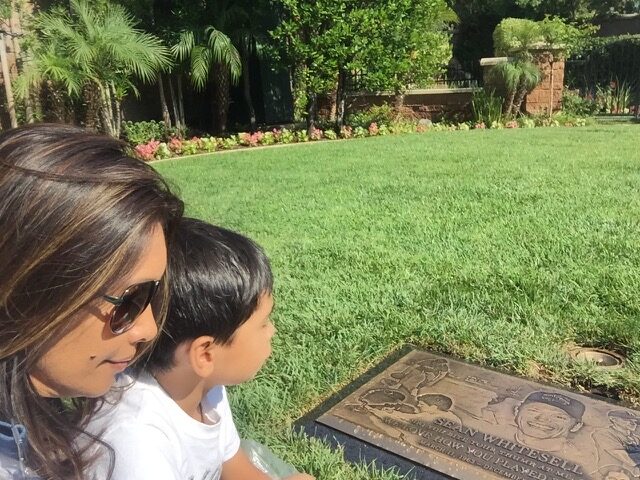
Maria: Yeah, I always thought back to when I was seven–to when I was a little girl and a little kid–who had just lost her dad in an accident. And I just remember the fear that I felt and I never wanted him to feel that fear. And so with our family counselor (always on speed dial at that point) she really was such an amazing resource for me and still is today because as you know, children grow up and there are constantly new challenges. Now he’s a pre-teen and there are different things that I still don’t have the language and the capability to address. We all need help. I mean no parent is perfect and we can all use some expert advice. Our family counselor always guided me through those difficult conversations and those difficult times. She even helped me to navigate whether or not to wake Gus up when Sean died in the middle of the night. It helps so much to have her as a resource.
Wendy: There is so much to unpack in all of this. I’m sure we could literally spend hours talking but, for the sake of time, I’ll move on to the next question.
This one comes up a lot in the brain tumor community. I believe people generally have good intentions, however, unless they’ve been in the situation, it’s impossible for them to know what is actually helpful. One of the things I learned from your book is that part of having an effective support system is being able to set boundaries and communicate what is needed. What are some of the best things people did to support you and your family during the most stressful times?
Maria: Oh so much! My family was there from the get-go. From the moment Sean was diagnosed they were always so willing to help and do anything we needed–even without me having to ask–which I’m so grateful for, but like you just said you have to set those boundaries. You have to ask for what you want and really manage that part of caregiving.
I sent out an e-mail to everyone at least once or twice a month because that was the only way I could communicate to them what was happening. I managed the information and was able to say what needed to be said and what we needed in order to continue to work on keeping Sean strong and keeping Gus and myself and our household in order.
There are different apps that you can use today to help you manage that aspect. But at the time, I just remember the easiest for me was just to say, here’s what we did today, here’s what happened at the appointment, and here’s what we need. And boom, somebody would say, I got that, I’m on it. Or, I’ll take him to his appointment on Tuesday, and I’ll take Gus to his play date on Wednesday. So it was just that systematic as far as our schedule.
"People want to help so let them help you."
And that was hard for me as an independent working woman. Especially as women, we tend to think we can do it all and that we don’t need anyone’s help. That was difficult at first. But you know what? I finally said I need help. I can’t do it alone. And so I just accepted it and embraced it and realized how amazing it was to get help.
It’s also amazing to give help and why deprive people of the joy of helping someone else? So let them help you. It’s it feels good. So ask for it. Write it out. Let them know what you need and what you want and you’ll get it. And if you don’t, ask someone else. That goes for other things too. If you don’t get the right therapist or doctor find another one. You know you can’t always get the right answer right away. So keep going until you do.
Wendy: I wasn’t planning to bring this up but the fact that you were able to also communicate with family and friends about other things such as the importance of keeping their voices down when they visited was astounding to me. You understood how difficult it is for someone with a brain injury to process different things at the same time (multiple conversations, loud sounds, and various other stimulation). I personally struggled with that for years and when I read that, I thought to myself, oh, she gets it. It was almost as if you were the one going through it. I believe Sean was blessed that you communicated that to all the people that were visiting him too. So that really isn’t a question, just more of a comment…
Maria: …Thank you. Thank you for that because there were moments when I thought maybe I was being overly controlling about that kind of stuff. But honestly, I was just so in tune with Sean. When you say it was almost as if I went through it, I talk about that sometimes, about how we were diagnosed with brain cancer, because I just felt it to some degree. Of course, I can only imagine what it truly what it feels like but even the small part that I felt was uncomfortable. It was painful so I just tried really hard to shield and protect him. And that’s why I made a schedule. I’m like, you’re allowed to come at X time and that’s it. And then from 4-5 or 7-8 PM, that’s the window. And so yeah, I was micromanaging a lot of that, but I just had to remember that it was for everyone’s good because there’s limited energy…
Wendy: …And you understood that!
Anyhow, remarkably, Sean was able to complete a short film that he was working on while going through treatments. You said, “Sean was able not only to finish the screenplay before his symptoms got worse but also to produce and direct the film.” Can you talk about what it meant to you to witness him accomplishing this?
Maria: It was everything at the time. I saw how much joy it gave him and purpose. I honestly think that’s what drove him besides Gus and myself and of course our family. It really kept him focused and motivated every day. And it was his desire to write and finish and direct this film that gave him energy so I was thankful for that. I think maybe it was a big part of why he was more healthy than someone else that had the exact same kinds of tumors in the exact same locations.
I think part of it too was that he had inoperable tumors and so he didn’t have to go through the resection or some of the symptoms and deficits that occur after a resection. It depends on who you are of course and where the tumors are located. But I just, I think for him it meant that he still had all of his abilities intact and had very few deficits until really almost close to the end. So that helped and enabled him to finish writing that short film and actually filming and directing it. I recognized this early on (and so did his brothers) and they all supported it so much and helped. They took him to set, helped him finance the process, and even into editing. We showed the film at a movie theater in Iowa and we had some premieres here in Los Angeles and so it was all of that together.
“We all worked as a team to help Sean live as long as he did and with a sense of purpose.“
Wendy: Wow! That’s amazing! Well, Maria, I realize that this has been a very long interview. And I know you probably need to get going. I just have three final questions:
1) Where can people find your book?
Maria: Ohh, very good question. Well, actually you can find my book either on my website mariaquiban.com, or your favorite booksellers’ website. It is available on Amazon.com, barnesandnoble.com, or your favorite bookstore. Thank God for technology. If you order it online you can usually receive it in a day or two, and I think there’s a special price on Amazon right now. I’m not really sure what it is but you can pick up a copy very easily so I encourage you to do that. I just really hope it can help–not just if you have a terminal illness, but I think just in general this can be a good guide for anyone going through any loss or grief.
Wendy: Oh, I’m pretty certain anyone who reads your book will be glad they did, you share so much good information. There is also a link to it on my suggested reading page.
2) how did you come up with the title of your book? What was the inspiration for that?
Maria: That’s another really good question because my publisher and I were throwing around different titles and we couldn’t decide on one. And we just kept going back to this theme. And I just realized I couldn’t do it alone. I had to ask for help and then it just dawned on us. My publisher said You Can’t Do It Alone that’s the title of this book. And so I said, oh, okay, I like it! And so, that’s kind of how it came about. And the book was actually published right smack in the middle of the pandemic and that phrase was mentioned quite often during those initial months (and years now really). So it’s a theme for all of us and something that we all have to remember–we’re not meant to do life (to go through the good times and the bad times) alone, you know?
Wendy: 100 percent Maria, I emphatically agree!
3) And lastly, is there anything else you would like to add before we sign off?
Maria: There are only a couple of things I would add.
First, to Bruce Springsteen: 📢 [Bruce, if you're reading this or watching you'll see your songs were actually a big part of our relationship and our story!
Second, it really is my hope and desire to not just help people with this book but to bring awareness to Glioblastoma and brain cancer. It is one of the most underfunded diseases when it comes to research in our country, in the world, actually. There has been very little advancement in this disease in the last 50 years! We desperately need to find the funding to continue this research. And I hope this book can inspire someone to study and go into this field of research and maybe, just maybe be the one to find the cure–because I want a cure to happen in our lifetime!
Wendy: Maria, thank you for saying that because it’s all so true. That’s why I do the “A Face of Strength” campaign too (Sean’s image is below). Thank you. Thank you for everything, Maria.
Maria: And once again, thank you for letting me be here because it just heals my heart. Truly from the bottom of my heart, thank you.
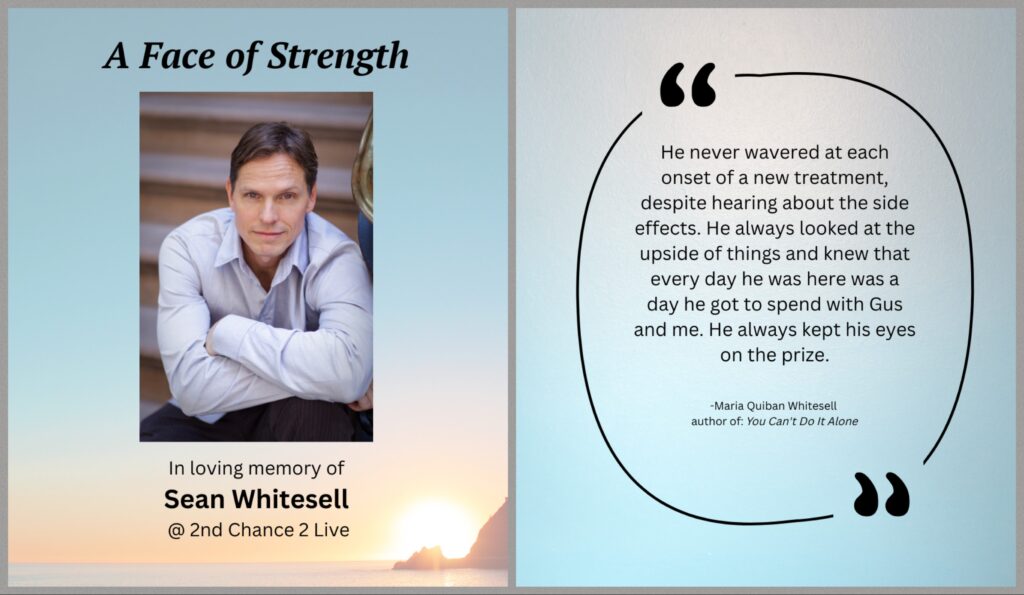
Click the image below to watch or listen to the interview:

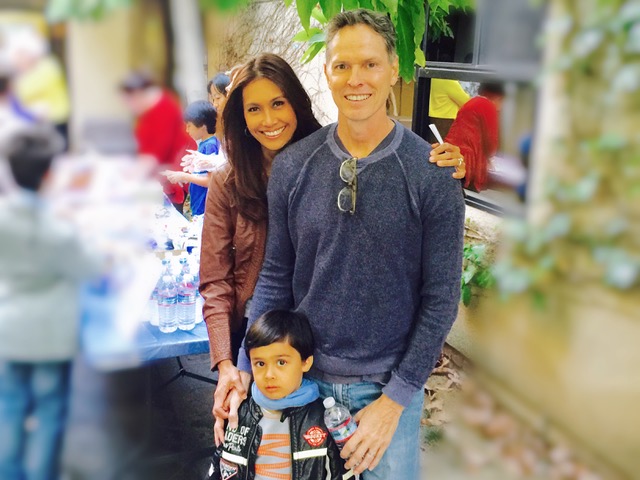
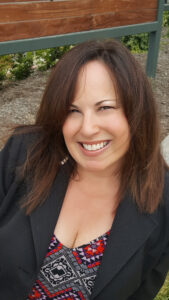 Hello. My name is Wendy and I’m a recovering workaholic. I'm also a brain tumor/cancer survivor.
The purpose of this blog is to share my experiences, memories, resources, and self-discoveries as I continue to transform from a workaholic into a more balanced person. I have read several books and stories about others who have had similar experiences
Hello. My name is Wendy and I’m a recovering workaholic. I'm also a brain tumor/cancer survivor.
The purpose of this blog is to share my experiences, memories, resources, and self-discoveries as I continue to transform from a workaholic into a more balanced person. I have read several books and stories about others who have had similar experiences 